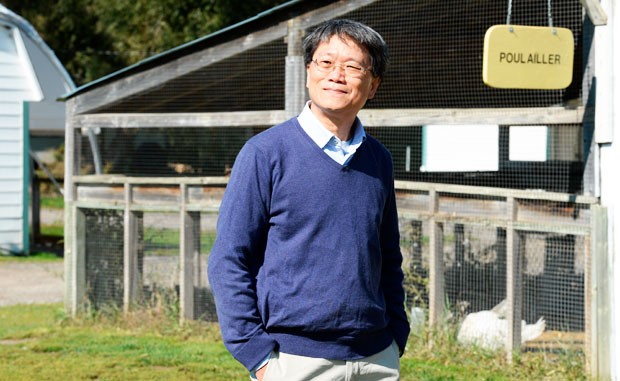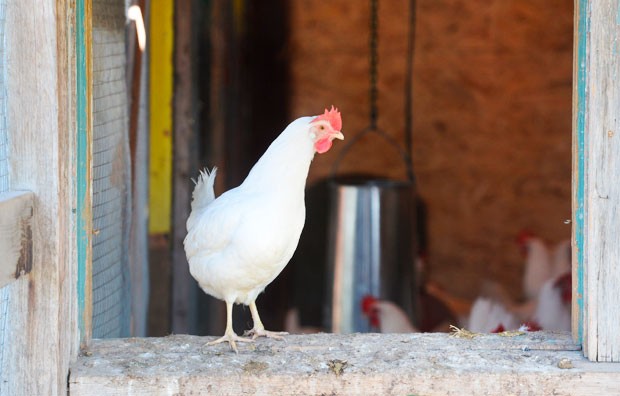$6 million for genomics research at Concordia
 Adrian Tsang | All photos by Genome Canada
Adrian Tsang | All photos by Genome Canada
Adrian Tsang, biology professor in Concordia’s Faculty of Arts and Science, just received some good news.
The Genomic Applications Partnership Program (GAPP) has awarded Tsang $6 million dollars over three years to support his work to develop an alternative to antibiotics in animal feed. The funding for his research comes from Genome Canada, Génome Québec and Elanco Animal Health.
With it, the director of Concordia’s Centre for Structural and Functional Genomics (CSFG) hopes to identify and characterize how lysozymes — which are naturally occurring antimicrobial enzymes found in animals’ immune systems — can be inexpensively recreated and used in livestock production to replace sub-therapeutic use of antibiotics.
“The resulting improvements in health and productivity would reduce production costs, leading to lower food costs for consumers, while reducing risks to public health,” Tsang says.
The high population density of modern livestock operations promotes the exchange of both commensal bacteria and pathogens, which can lead to rapid spread of infectious diseases.
“Given that global use of antibiotics in livestock projection is expected to nearly double by 2030 if no alternative has been found, their use in productivity enhancement has come under pressure from both the scientific community as well as consumer groups,” Tsang notes.

In partnership with Elanco Animal Health, Tsang plans to apply genomics-enabled technologies to the development of lysozymes.
Elanco will, in turn, conduct pivotal animal studies and manage the registration and manufacturing processes required to bring the lysozyme-enriched feed to market.
Todd Armstrong is the director of research and development for Elanco’s Nutritional Health business unit. “Antibiotics are vital to livestock production for the control and prevention of disease,” he says.
“Elanco is committed to the responsible and judicious use of antibiotics, so we are focused on identifying alternative nutritional strategies to replace their use for growth promotion.”
For Concordia, such partnerships with industry are crucial in applying research to marketplace solutions that benefit Canadians and the rest of the world.
“Research contracts and development programs like the Genomic Applications Partnership Program are effectively helping university experts harness the power of disruptive technologies,” says Christophe Guy, Concordia’s vice-president of Research and Graduate Studies.
“Moreover, in partnering with Elanco — a leader in its field — genomics researchers like Adrian Tsang can apply their research expertise to a pressing real-life problem and offer concrete solutions. At Concordia, we are extremely proud of this work, which results in contributions that address global sustainability issues.”
This marks the second time that Tsang has been awarded funding through the GAPP, which supports translational research and development projects as identified by industry, government, not-for-profits and other “receptors” of genomics knowledge and technology.
In 2014, Tsang received $6 million to work with Elanco to develop new enzyme combinations for pork and poultry producers.
Find out more about Adrian Tsang. For more information on GAPP-funded projects, visit Genome Canada.





